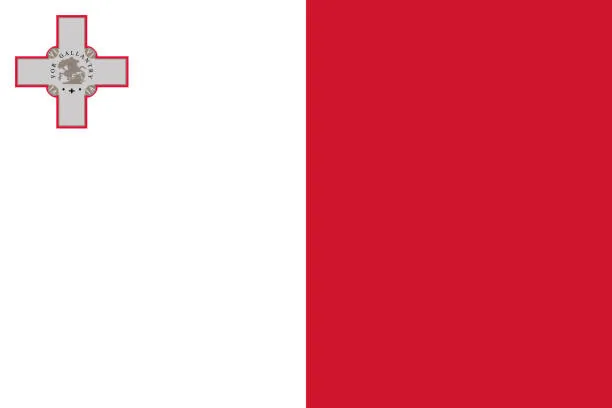
Hiring in Malta at a glance

An Employer of Record (EOR) in Malta can assist in accessing talent efficiently. By partnering with an EOR, companies can tap into the local talent pool without establishing a legal entity. The EOR acts as the primary employer on the company’s behalf and handles payroll, tax compliance, employment contracts, benefits, and HR-related tasks, Employers of Record (EORs) in Malta play a crucial role in helping businesses hire and onboard employees while ensuring compliance with local labor laws. By partnering with a Malta-based EOR, companies can streamline their HR operations and navigate legal complexities more efficiently. EORs possess in-depth knowledge of Maltese regulations, providing valuable support in areas like payroll, taxes, and benefits administration.
Moreover, this arrangement allows businesses to establish a presence in Malta without the need for a legal entity, saving time and resources. With a diverse and skilled workforce, Malta offers immense potential for companies looking to expand in Europe. By leveraging the expertise of EORs, businesses can seize growth opportunities, tap into the local talent pool, and foster a successful presence in the Maltese market.ring adherence to local regulations. This streamlines the hiring process, allowing businesses to focus on finding the right talent for their needs.
Furthermore, EORs also take care of localized employee benefits that can help you retain talent. Overall, an EOR in Malta provides a seamless solution, enabling companies to hit the ground running and access the desired talent quickly and effectively.
Expand your team in Malta with confidence by harnessing Gloroots' expertise as your trusted Employer of Record (EOR). Our comprehensive services take care of payroll, tax, benefits, and compliance, enabling you to prioritize your employees and drive company growth.
By partnering with Gloroots' Malta EOR, you can streamline operations, mitigate risks, and ensure compliance with Maltese employment regulations. We handle the complexities of local employment, providing a seamless experience for your expansion in Malta. With our support, you can focus on talent acquisition and team growth while entrusting compliance and payroll intricacies to us. Rely on Gloroots to navigate the Maltese labor landscape and unlock your business's potential in this promising European market.
Effectively managing employee classification is crucial when conducting business in Malta. Misclassifying workers can expose your company to legal risks and financial penalties. To safeguard your business, partnering with a reputable PEO/EOR in Malta is a wise decision.
By engaging a PEO/EOR, you ensure compliance with Maltese labor laws, accurate employee classification, and seamless payroll processing. These experts handle comprehensive benefits, ensuring that your workforce receives the necessary legal protections and entitlements they deserve. Entrusting employment-related obligations to trusted professionals in Malta allows you to concentrate on core business operations with peace of mind.
By leveraging the expertise of a Malta PEO/EOR, you mitigate the risks associated with misclassification and enhance your business's compliance and operational efficiency within the Maltese labor market.
In Malta, the main labor regulation is the Employment and Industrial Relations Act, which establishes the guidelines for employee protection and workers' rights, covering around 220,000 individuals in the workforce.
Moreover, Malta adheres to EU directives and regulations that concern labor conditions, which are integrated into the country's subsidiary laws. These laws also encompass health and safety standards, disability rights, equal treatment, and data protection measures.
Employers need to fully understand these laws and prepare compliant employment contracts and ensure wages and benefits criteria are met. To ensure compliance with these regulations and provide a competitive benefits package to employees partner with a Malta EOR.
Employment Contract
In Malta, employees in business organizations are provided with written contracts that outline essential terms and conditions of their employment. These contracts typically cover details such as
- Working hours,
- Compensation,
- Overtime,
- Leave policies and more.
- Employers are required to furnish these contracts to employees within one month of their start date.
However, the specific type of employment contract in Malta can vary and largely depends on the organization. The Maltese labor code recognizes several types of employment contracts, including:
1. Indefinite or Open-Ended Employment Contract:
This is the most common type of employment agreement.
It has no set end date, and either the employer or the employee can terminate it.
Both parties are bound by provisions regarding severance, notice periods, and collective agreements.
2. Fixed-Term Employment Contract:
Employers can renew this contract for up to four years.
After the specified term ends, it may transition into an indefinite contract.
If the employer wishes to extend the contract, they must do so within 12 days.
Terminating the contract before its completion requires the employer to pay half of the employee's wages.
3. Probation Period in Employment Contract:
The probation period can be terminated with one week's notice.
A one-year probation period applies specifically to managerial and executive positions.
In addition to these, there are other types of employment contracts used in Malta, such as part-time permanent work, commission-based employment, apprenticeships, and traineeships.
Working Hour
In Malta, a regular full-time workweek comprises 40 hours per week or 8 hours per day. As stated in the Wage Regulation Orders, the standard working hours are set at 40 hours per week, but they should not exceed an average of 48 hours per week over a 17-week period.
Overtime
Overtime in Malta is governed by the Wage Regulation Order (WRO), which sets specific rules for overtime based on different industries. Workers must give written consent for overtime, which can be withdrawn at any time. If the WRO does not cover an employee, overtime is calculated at 150% of the regular pay rate for work exceeding 40 hours per week, averaged over four weeks.
For qualifying overtime, a special income tax rate of 15% is applicable on emoluments up to a maximum of 10,000 EUR, rather than a maximum of 100 hours of overtime. Any overtime emoluments exceeding this amount are subject to the standard applicable rates of income tax.
Minimum Wage
The national minimum weekly wage for full-time employees is as follows:
- €221.78 for employees aged 18 and over
- €215.00 for those aged 17
- €212.16 for employees under 17
For part-time workers, the minimum wage is calculated pro-rata, using the same hourly rate as a comparable full-time employee, as defined by the applicable Wage Regulation Order.
Annual Leave
Full-time employees receive 24 days of paid time off (PTO), and if a public holiday occurs on a weekend, they get an extra day of PTO. For the year 2022, since there are 4 public holidays falling on weekends, employees are entitled to 28 days of leave in total.
The PTO accrual rate for full-time employees is 2 days per month, and they become eligible for annual leave after completing one month of work. Part-time employees' entitlement to PTO is calculated based on the average number of hours worked per day over a week multiplied by 24.
Maternity Leave and Paternity Leave
In Malta, maternity leave lasts for 18 weeks and commences 4 weeks before the anticipated due date. Following childbirth, the employee must take a minimum of 6 weeks of leave. During the first 14 weeks of maternity leave, the employer pays the maternity benefit at 100% of the regular salary rate. After this period, the benefit is paid by Social Security.
There is no legally mandated paternity leave.
Sick Pay
Sick leave in Malta is governed by the Wage Regulation Order (WRO). If the WRO does not apply to an employee, they are entitled to two weeks (10 working days) of sick leave per year. Beyond this period, the employee may be eligible for a sickness benefit provided by Social Security. To claim sick leave, the employee is required to present a medical certificate for the duration of their absence.
Income Tax
Employee Payroll Contribution
Employer Payroll Contribution
Termination Process
In Malta, employers have the right to terminate a fixed-term contract based on various reasons, such as business needs, personal reasons, or worker misconduct. This termination process requires providing notice and a written explanation for the decision. In cases of misconduct, the employer must issue a warning and allow the employee an opportunity to explain their actions.
Additionally, in Malta, an employer can terminate an employee's contract for just cause, redundancy, or upon reaching the age of retirement. If an employee has worked for at least one month, they have the right to request an employment certificate that includes the dates of employment and a description of their duties, along with the reason for termination.
Furthermore, upon termination, an employee in Malta has the right to claim financial compensation for any outstanding leave balance owed to them.
Notice Period
Severance Pay
There are no legal regulations or mandated laws concerning severance pay.
Probation Periods
Malta introduced an employment legislation update in 2023, stating that definite contracts must have a minimum duration of six months.
When a definite contract is renewed for the same role and responsibilities, no new probationary period is required.
For fixed-term contracts lasting between six and fifteen months, the probationary period is calculated at two months for every six months of contract duration.
In the case of fixed-term contracts shorter than six months, the probationary period is set at one-third of the contract's duration.
For fixed-term contracts exceeding 15 months, the probationary period is six months.
Employees holding technical, executive, administrative, or managerial positions with wages at least double the national minimum wage have a twelve-month probationary period.

Frequently asked questions
















